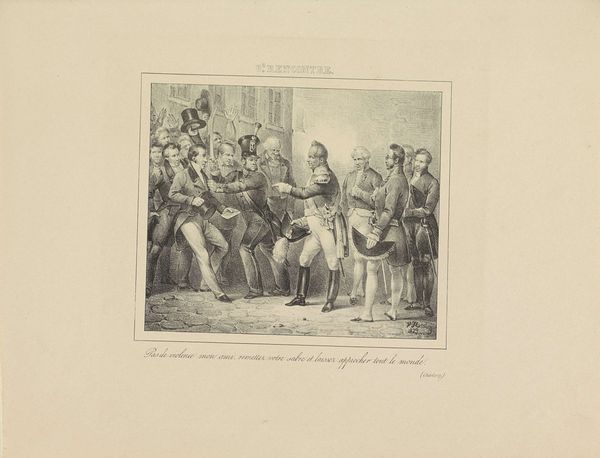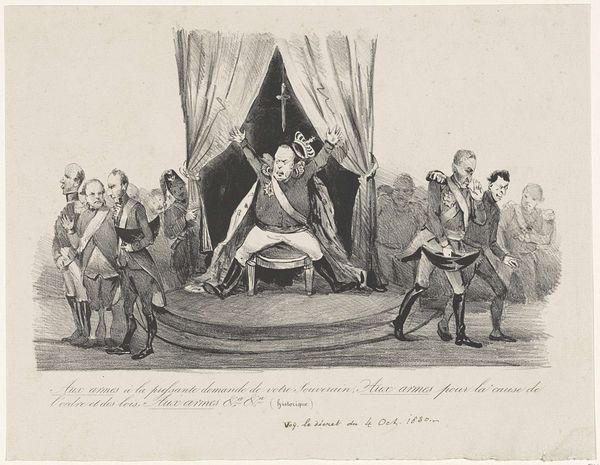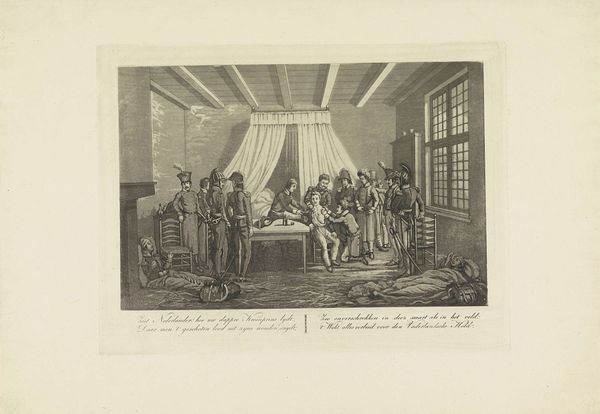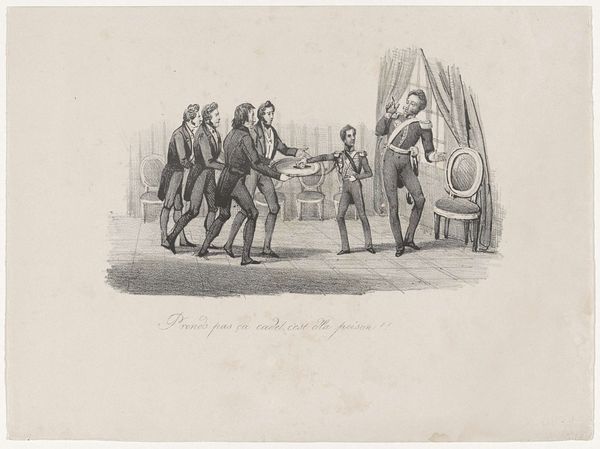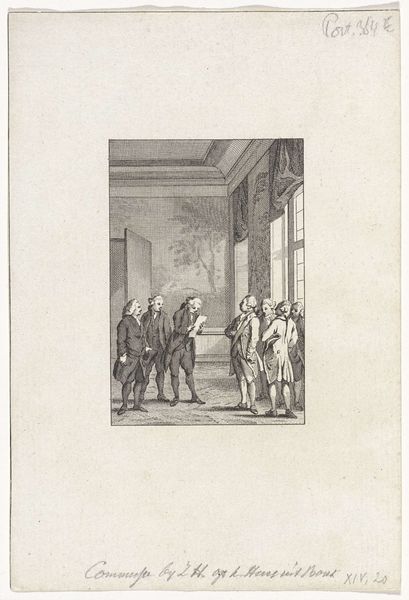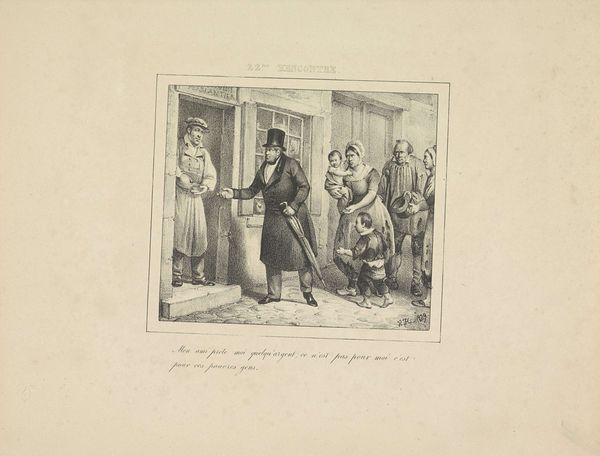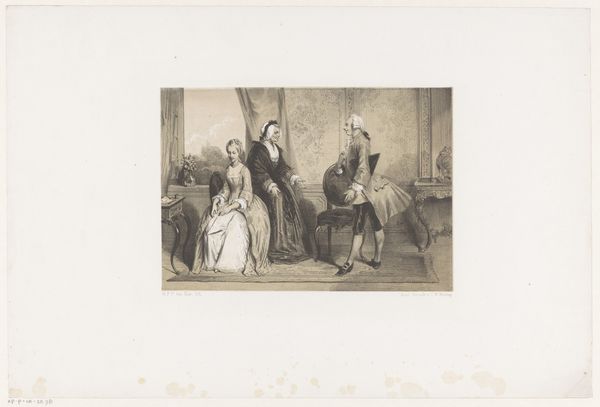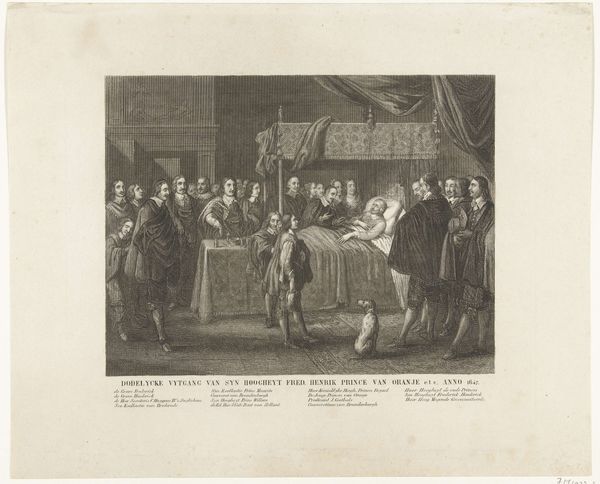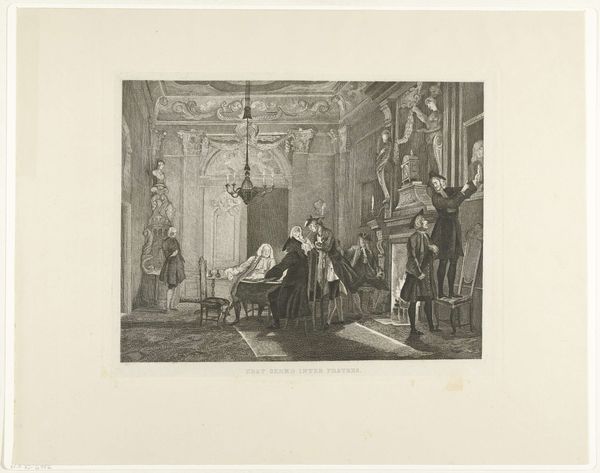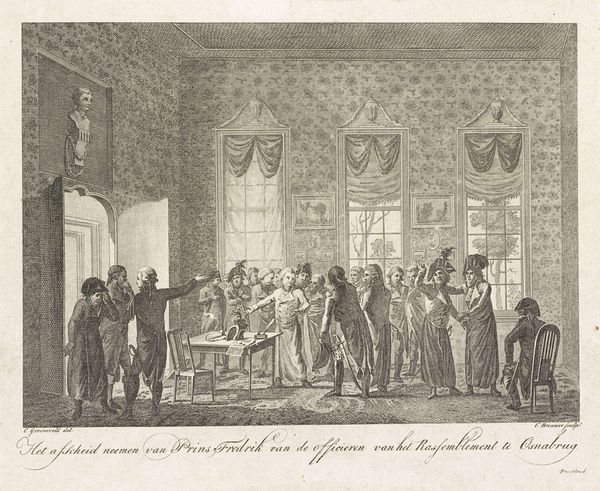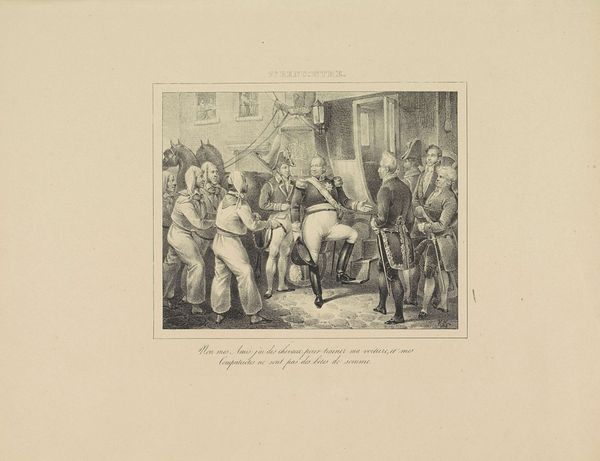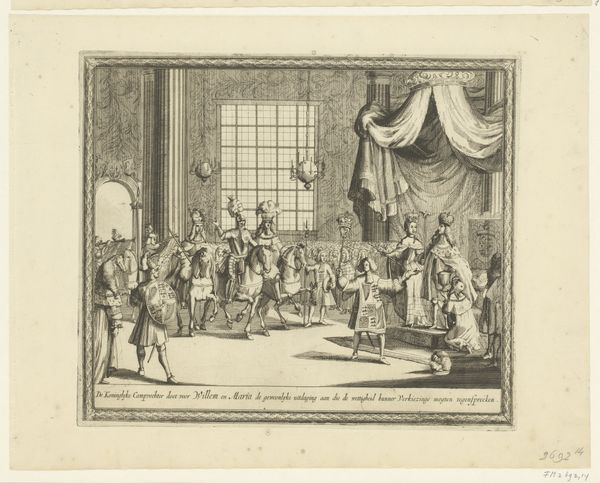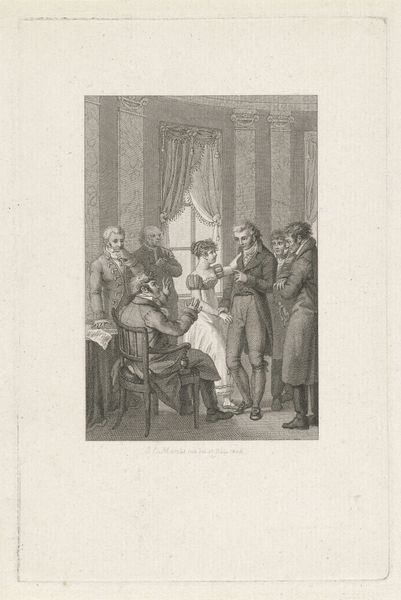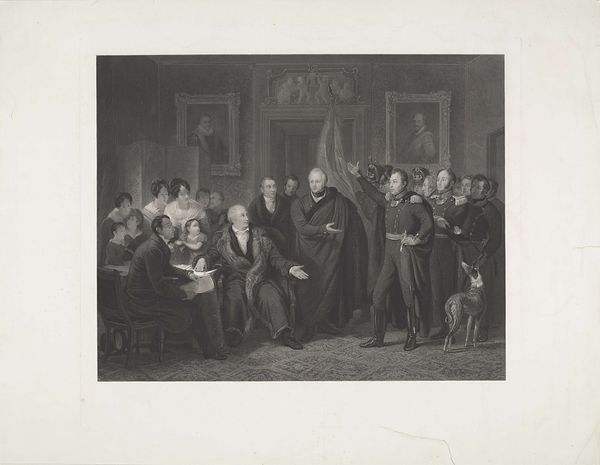
print, engraving
#
aged paper
# print
#
light coloured
#
old engraving style
#
personal sketchbook
#
old-timey
#
romanticism
#
genre-painting
#
history-painting
#
engraving
Dimensions: height 277 mm, width 366 mm
Copyright: Rijks Museum: Open Domain
Editor: This is "Visit of the Queen to the Wounded Prince of Orange, 1815," an engraving from the Rijksmuseum. It strikes me as a very formal and staged scene, but what catches my attention is how the figures are arranged within this grand interior. What stands out to you? Curator: What immediately jumps out is the image’s role in constructing a specific narrative around the monarchy after the Napoleonic era. We see Queen Wilhelmina visiting her son, Prince William, who was wounded at the Battle of Waterloo. How does this scene work to legitimize the Orange dynasty after a period of French influence and occupation? Consider the intentional display of sympathy and familial duty. Editor: That's fascinating. So it's less about historical accuracy and more about public perception? Is the Queen's visit almost a political performance? Curator: Precisely! Print culture in the 19th century was a powerful tool for shaping public opinion. This wasn't just about documenting an event; it was about crafting an image of a caring, compassionate, and legitimate royal family, crucial for consolidating power after upheaval. Notice the emphasis on domesticity and care, reinforcing traditional gender roles, the Queen as nurturer. Where does this intersect with, or diverge from, other images of powerful women at the time? Editor: So it's about control of the narrative and emphasizing traditional values after a time of disruption? I hadn't considered how strongly the print would convey a specific political agenda. Curator: Indeed. Images like these offer a glimpse into how power operates and the vital role of art in constructing national identity. Always consider who benefits and who might be excluded. Editor: This gives me a lot to think about. Thanks for shedding light on the historical and social context.
Comments
No comments
Be the first to comment and join the conversation on the ultimate creative platform.
